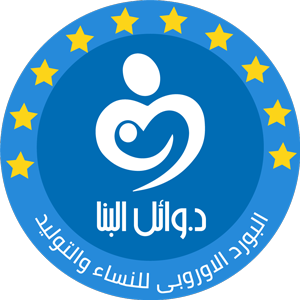Intrauterine infection (chorioamnionitis)
Intrauterine infection, also known as chorioamnionitis, is infection within the womb.
Intrauterine infection is infection within the womb, which, in the context of pregnancy, usually means infection of:
- the membranes that surround the baby
- the umbilical cord
- the amniotic fluid.
Research suggests that intrauterine infection may be responsible for as many as 40 percent of preterm births, with higher rates in earlier gestations (very premature babies).
What is intrauterine ine infection?
The womb, amniotic fluid and the environment in which the baby develops can become infected with bacteria. These are usually natural bacteria that many women carry in the vagina or skin, which are harmless normally, but have migrated to parts of the body where they shouldn’t be. The most common cause of intrauterine infection is through the vagina and cervix, but it can also come through the placenta, through the fallopian tubes or via invasive procedures such as amniocentesis.
Infections that could ascend to the womb include E-Coli and Group B Streptococcus (GBS), bacterial vaginosis, chlamydia, trichomona, gonorrhoea, syphilis and HIV.
If the infection reaches the womb it can cause the fetal membranes (membrane of the sac that surrounds a baby in the womb, also called amnion or chorion) to become inflamed and infected. This is called chorioamnionitis. If the umbilical cord is affected it is called funisitis.
What are the effects of chorioamnionitis?
This is an infection of the membranes of the sac that holds a baby and the waters, and usually occurs when an undetected infection progresses up into the womb from the vagina. The infection causes the membranes to become inflamed and this may in itself trigger preterm contractions. It could also cause the waters to break early (also known as preterm premature rupture of the membranes, or PPROM for short). The baby may need to be born soon to prevent a more serious infection.
Look out for these symptoms of chorioamnionitis:
- high temperature
- a foul-smelling vaginal discharge
- fast pulse rate
- pain in your abdomen.
If you have any of these symptoms, seek advice from your healthcare team as soon as possible as you may need treatment.
Urinary tract infections (UTIs)
Often caused by the E-Coli bug, UTIs affect about five percent of pregnant women. In between one third and a half of those women, the UTI will travel up into the kidneys, causing acute pyelonephritis, a kidney infection that can cause premature labour and low birthweight. Watch out for these symptoms of UTIs:
- high fever
- nausea
- vomiting
- pain in your sides or lower back
- discomfort or pain when passing urine
- blood in the urine
If you have any of these symptoms, contact your healthcare team as soon as possible as you may need antibiotics.
Treatment for infections
It is not always easy to spot an infection; in the early stages there may be no obvious symptoms. If there is any indication of an infection, for example if you are running a fever, your healthcare team will test you with either a blood test or a simple swab.
If your waters break early (PPROM), you may be given antibiotic tablets as a matter of course, to reduce the risk of chorioamnionitis.
If the infection has progressed beyond a certain point, or if you are very unwell you may need to be admitted to hospital for intravenous antibiotics and in some cases the baby may need to be delivered. In most cases of PPROM, taking antibiotics helps to reduce the likelihood of chorioamnionitis, reduces the number of births happening within 48 hours of waters breaking, and reduces the chances of the baby developing an infection.
Through our center, we periodically follow up at the time of pregnancy the possibility of intrauterine infection ( chorioamnionitis) .through periodic checks and analyzes
